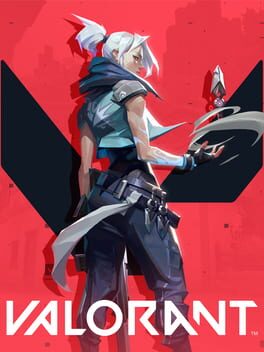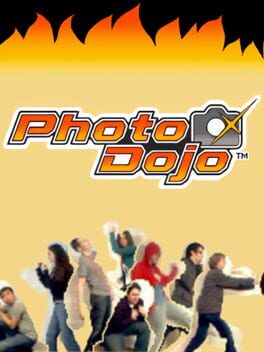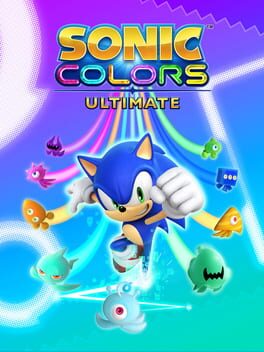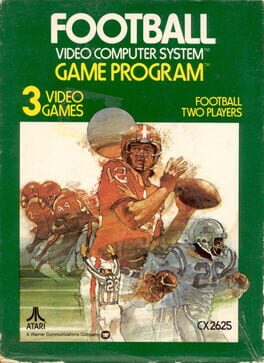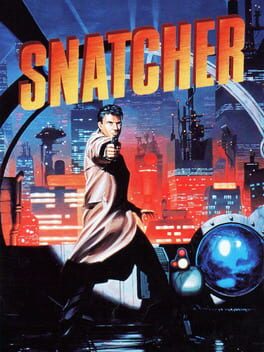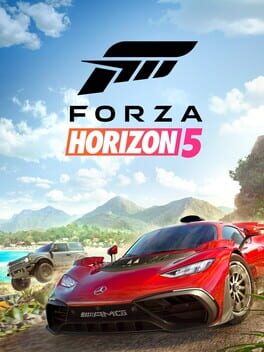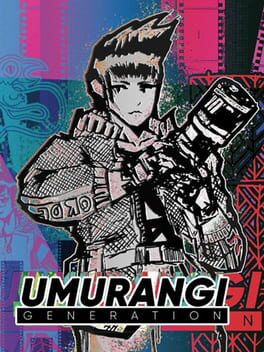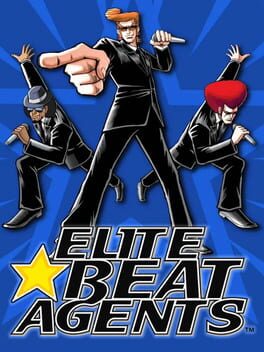Random_Hajile
40 Reviews liked by Random_Hajile
Valorant
2020
Photo Dojo
2009
Silent Hill 2
2001
I kind of understand why this is considered one of the more “well received” 3D Sonic games. People’s expectations of a Wii exclusive Sonic game coming off the heels of Sonic Unleashed (in which people always say the love the day time levels, in which this game is styled after) and Sonic 06 (dont really need to explain this one) were probably pretty low. So when it turned out to be pretty competent, people were probably blown away that Sonic had a fun 3D game. Add in the nice cutscenes, saturday morning cartoon story and looking pretty good for a Wii game, and it established its legacy on the good side of Sonic history. I do not like this game. I barely had any fun playing this, I was mainly just frustrated. This is only the second game that I have played with the boost formula, the other being Forces. Overall, I feel like I had more fun with that game, despite recognizing that Colors is better. I just dont get the boost gameplay, maybe my reflexes arent fast enough? But I never have time to react to things coming my way and just never feel like I can go fast as a result. Forces was so easy that it played itself, so thats probably why I enjoyed it more, because at least I could be winning and laughing at how funny the game is. This game, I feel like a toddler playing my first game. It took me 53 MINUTES to complete the final boss, this gameplay just doesnt click for me. And I dont really have this issue with 2D sonic games, I complete those just fine. Even Sonic Adventure, during the Sonic and Tails stages I am completely fine. On top of all that, I dont have an issue with the sillier story, it can actually be pretty funny at times. But the world designs and overall art style is just so, boring. The music is super forgettable, which is shocking for a Sonic game. The audio work is REALLY bad, like Sonic wont make a noise randomly from time to time when in the middle of gameplay. It’s not the worst thing ever, but I really did have a overall more memorable and more fun time when playing Forces compared to this.
Elden Ring
2022
Football
1978
This is when sports games were fucking sports games. Look at these titles! "Baseball", "Basketball", "Football"...not this "Madden" shit. Just plain-ass, normal, everyday, no question about it, no NFL, no year, not named after a player, not named after a coach, not named after the referee's pet goldfish, no quarterback, dime-back, Nickelback, simple, ordinary, unembellished, unmistakable, crystal clear, as frank as Frankenstein, as blunt as an atom bomb, one compound word: it's mother fucking, goddamned, sons-of-bitchin', fuck-fuck-fucking FOOTBALL!
Smashes cartridge into slot so hard it shakes the entire fucking planet
Smashes cartridge into slot so hard it shakes the entire fucking planet
Snatcher
1992
How close can you toe the line of homage without falling completely into plagiarism? While hard to ignore the obvious influences that Kojima and his crew take inspiration from, the gorgeous and colorful 16-bit pixel art of Snatcher is able to create a path of its own into the cyberpunk genre by offering a tonal deviation from the gritty dystopic movies it aesthetically steals from into vibrant comic book territory filled with police procedural twists and turns and injected with just enough japanese melodrama.
Many indie games try their best to recreate the look of those old japanese PC-98 and MSX games, but playing Snatcher nowadays it becomes clear that achieving such an identity extended past just replicating its 16-bit sprite work and was instead a byproduct of the videogame technology and anime cultural zeitgeist that permeated so much of the 80s/90s Japan and filled Snatcher with its color, sound and style, a magnum opus of what can only be now considered a lost art. Despite how static Snatcher can be at points, the power of the Sega CD turns every screen a joy to look at and listen to, making the case for why VNs are a venue to take in the realm of videogames.
Thankfully, at this point in time a not so confident as he is now Kojima was at the helm of the project, managing to restrain his obssessive nerdisms into the background and instead utilizing the premise of his cinema aspirations to create a much more subdued and logically competent thriller that gamifies Blade Runner and takes advantage of the medium of interactivity to immerse the player in clever detective work and satisfying plot point progression in ways film never could. The simple choice of being able to call your wife on the phone and talk about your day and feelings does more for the universe of Snatcher than whatever post 90s Kojima lore dump ever could.
It isn't without it's problems. Much of its "deductive puzzle solving" solely consists of exhausting every combination of "look" and "investigate" commands until the characters decide it's time to advance, the rushed and campy ending would have actually greatly benefited from Kojima's tendency to tie in world socioeconomical politics with his characters personal struggles which would have more strongly cemented Snatcher's themes of human connection and distrust, and the constant forceful "flirt" with every single woman (and child) that shows up on the screen quickly goes from being mildly amusing to straight up creepy. Still, the self awareness and sense of humor keeps things light and fun, and Snatcher's addition to the canon of japanese art that has its finger on the pulse of modern technology makes this a must for Kojima fans. Snatcher 2 would be a joy to witness, though I doubt they could ever manage to recreate the 90s in such a fashion.
Many indie games try their best to recreate the look of those old japanese PC-98 and MSX games, but playing Snatcher nowadays it becomes clear that achieving such an identity extended past just replicating its 16-bit sprite work and was instead a byproduct of the videogame technology and anime cultural zeitgeist that permeated so much of the 80s/90s Japan and filled Snatcher with its color, sound and style, a magnum opus of what can only be now considered a lost art. Despite how static Snatcher can be at points, the power of the Sega CD turns every screen a joy to look at and listen to, making the case for why VNs are a venue to take in the realm of videogames.
Thankfully, at this point in time a not so confident as he is now Kojima was at the helm of the project, managing to restrain his obssessive nerdisms into the background and instead utilizing the premise of his cinema aspirations to create a much more subdued and logically competent thriller that gamifies Blade Runner and takes advantage of the medium of interactivity to immerse the player in clever detective work and satisfying plot point progression in ways film never could. The simple choice of being able to call your wife on the phone and talk about your day and feelings does more for the universe of Snatcher than whatever post 90s Kojima lore dump ever could.
It isn't without it's problems. Much of its "deductive puzzle solving" solely consists of exhausting every combination of "look" and "investigate" commands until the characters decide it's time to advance, the rushed and campy ending would have actually greatly benefited from Kojima's tendency to tie in world socioeconomical politics with his characters personal struggles which would have more strongly cemented Snatcher's themes of human connection and distrust, and the constant forceful "flirt" with every single woman (and child) that shows up on the screen quickly goes from being mildly amusing to straight up creepy. Still, the self awareness and sense of humor keeps things light and fun, and Snatcher's addition to the canon of japanese art that has its finger on the pulse of modern technology makes this a must for Kojima fans. Snatcher 2 would be a joy to witness, though I doubt they could ever manage to recreate the 90s in such a fashion.
Forza Horizon 5
2021
Including this one, almost every recommendation of Forza Horizon 5 starts with the same sentiment: "I'm not into cars." And I think that's probably a good thing! As a society, we would ideally be unified against cars as they exist today. I'm writing this sentence during the warmest New Year's Day on record. The automotive and fuel industries have such a tight grip on the leaders of our planet that they're willing to kill it — and us — in the process. Most days it feels like they've won, like cars have supplanted humanity as the dominant species.
Forza Horizon 5 presents, for better and for worse, the kind of romanticized fantasy Hideki Anno has spent an entire career rebuking. Twenty-six episodes of television, five movies, and twenty-five years later, Anno and team have created what is paradoxically the most complex AND most poignant argument against escapism possible with Neon Genesis Evangelion. A franchise about teenagers using big robots to fight even bigger monsters is eventually revealed to be a vessel through which to tell viewers that it's time to grow up — put it all in the box and experience the real world — horrifying as it may be. Societally cars are a status symbol, a mask we wear for others, and a means to express our freedoms all in one. Forza Horizon 5 rejects the reality of the industry and instead chooses to fully lean into the societal pedestals we've placed cars upon to create an escapist dream. What if, in this virtual space, it was all just okay? Not only does Forza revere cars in the way one might have in the mid-to-late 1950s at the birth of the US Interstate Highway System under Dwight Eisenhower, but it also can't conceive of a world in which said highway system might have been a bad thing. In fact, Forza Horizon 5 frequently asks you to leave behind the act of driving a supercar 200mph on highways and roads for the even more thrilling experience of driving a supercar 200mph through someone's farmland.
It’s through this "ignorance is bliss" lens that I have to be honest and say Forza Horizon 5 is one of the most joyful video game experiences you can play on Xbox Gamepass, or anywhere for that matter. It's the ways in which Forza sidesteps the dissonance entirely and creates an automotive dreamworld that draws me to its absolutely gorgeous setting time after time. When I'm behind the wheel, rewards come as quickly as I can propel my car forward. An accidental donut in the middle of a city street here, an eviscerated cactus there, everything amounts to points I can put towards adding another car to the garage. Can I drift for an entire mile? How fast do I need to drive to launch myself off this cliff and clear the entire river? What would happen if you put a jet engine in the first-ever automobile? Playground Games has asked these questions, discovered the answers, and understands how to compensate you for your curiosity.
While the structured experiences and rewards therein provide enough pure adrenaline-based fun for most people both on and offline, it’s the open world aspect that always hooks me more than anything else. Despite devoting a portion of this piece to a “fuck cars” mentality, the truth is that the dichotomy I feel between this game and the reality of the automotive industry is one I’ve experienced for most of my life. I grew up in the suburbs of New Jersey and, just like the rest of the United States, it’s unfortunately difficult to exist without access to or the possession of a car. Like most teenagers I spent an inordinate amount time longing for the freedoms owning a car provided. To go anywhere, and to do it with or for others on a whim is the stuff of fantasy. I was fortunate enough to finally get one in my senior year of high school, it was a big red thing that sure looked like a truck but was definitely not a truck — I loved it dearly. It was in the years that followed I learned something very important about myself: No, I’m not into cars… but I absolutely love driving. I’d spend hours by myself with an iPod plugged into my tape deck blasting music through shitty speakers and weaving through the mountains in upstate New York to discover which songs paired best with which roads. I’d pack as many friends into the back seat as possible and, with the windows down, cruise to the beach for a day and marvel at the first moment you could smell ocean air from the highway. In the nights insomnia got the better of me I’d get out of bed in the early morning hours and roll around the neighboring towns as silently as possible, a passive presence among groups of grazing deer until I felt like I might be able to go back to sleep.
Sometimes, with the right song on Spotify and the right time-of-day and weather systems aligning, Forza Horizon 5 manages to get pretty close to recreating that feeling. Even while writing this I struggle to decide if I’d really consider it escapism at all. Was it escapism in 2013 when I couldn’t sleep? Was it escapism in 2017 when I wanted to see the leaves change? Is it escapism now when I want to drive as fast as I can with my friends on a road purpose-built for connective experiences? And even if it is, is that such a bad thing?
Forza Horizon 5 presents, for better and for worse, the kind of romanticized fantasy Hideki Anno has spent an entire career rebuking. Twenty-six episodes of television, five movies, and twenty-five years later, Anno and team have created what is paradoxically the most complex AND most poignant argument against escapism possible with Neon Genesis Evangelion. A franchise about teenagers using big robots to fight even bigger monsters is eventually revealed to be a vessel through which to tell viewers that it's time to grow up — put it all in the box and experience the real world — horrifying as it may be. Societally cars are a status symbol, a mask we wear for others, and a means to express our freedoms all in one. Forza Horizon 5 rejects the reality of the industry and instead chooses to fully lean into the societal pedestals we've placed cars upon to create an escapist dream. What if, in this virtual space, it was all just okay? Not only does Forza revere cars in the way one might have in the mid-to-late 1950s at the birth of the US Interstate Highway System under Dwight Eisenhower, but it also can't conceive of a world in which said highway system might have been a bad thing. In fact, Forza Horizon 5 frequently asks you to leave behind the act of driving a supercar 200mph on highways and roads for the even more thrilling experience of driving a supercar 200mph through someone's farmland.
It’s through this "ignorance is bliss" lens that I have to be honest and say Forza Horizon 5 is one of the most joyful video game experiences you can play on Xbox Gamepass, or anywhere for that matter. It's the ways in which Forza sidesteps the dissonance entirely and creates an automotive dreamworld that draws me to its absolutely gorgeous setting time after time. When I'm behind the wheel, rewards come as quickly as I can propel my car forward. An accidental donut in the middle of a city street here, an eviscerated cactus there, everything amounts to points I can put towards adding another car to the garage. Can I drift for an entire mile? How fast do I need to drive to launch myself off this cliff and clear the entire river? What would happen if you put a jet engine in the first-ever automobile? Playground Games has asked these questions, discovered the answers, and understands how to compensate you for your curiosity.
While the structured experiences and rewards therein provide enough pure adrenaline-based fun for most people both on and offline, it’s the open world aspect that always hooks me more than anything else. Despite devoting a portion of this piece to a “fuck cars” mentality, the truth is that the dichotomy I feel between this game and the reality of the automotive industry is one I’ve experienced for most of my life. I grew up in the suburbs of New Jersey and, just like the rest of the United States, it’s unfortunately difficult to exist without access to or the possession of a car. Like most teenagers I spent an inordinate amount time longing for the freedoms owning a car provided. To go anywhere, and to do it with or for others on a whim is the stuff of fantasy. I was fortunate enough to finally get one in my senior year of high school, it was a big red thing that sure looked like a truck but was definitely not a truck — I loved it dearly. It was in the years that followed I learned something very important about myself: No, I’m not into cars… but I absolutely love driving. I’d spend hours by myself with an iPod plugged into my tape deck blasting music through shitty speakers and weaving through the mountains in upstate New York to discover which songs paired best with which roads. I’d pack as many friends into the back seat as possible and, with the windows down, cruise to the beach for a day and marvel at the first moment you could smell ocean air from the highway. In the nights insomnia got the better of me I’d get out of bed in the early morning hours and roll around the neighboring towns as silently as possible, a passive presence among groups of grazing deer until I felt like I might be able to go back to sleep.
Sometimes, with the right song on Spotify and the right time-of-day and weather systems aligning, Forza Horizon 5 manages to get pretty close to recreating that feeling. Even while writing this I struggle to decide if I’d really consider it escapism at all. Was it escapism in 2013 when I couldn’t sleep? Was it escapism in 2017 when I wanted to see the leaves change? Is it escapism now when I want to drive as fast as I can with my friends on a road purpose-built for connective experiences? And even if it is, is that such a bad thing?
Frogger
1981
The Letter
2014
A 20 minute long """horror""" game where you walk around a poorly lit map finding letters to solve the world's worst mystery; a pioneer of the "Unity Engine Asset Flip" genre. The day this game was published on the Wii U eshop marked the day gamers realized that Nintendo did not give a flying fuck about what schlock got posted on their platform.
Exo One
2021
Forza Horizon 5
2021
Metroid Dread
2021
Despite being one of the more recognizable and prestigious flagship titles from Nintendo, Metroid has always struck me as being more of a niche franchise than what its historical legacy would suggest. In a similar fashion to what Link to the Past did for the Zelda series, Super Metroid polished and perfected the open ended design and progression concepts of its predecessors, eliminating much of their more frustrating aspects, and established a success formula that the franchise has religiously followed from then on. In doing so, Metroid has been the same game for more than two decades, and putting aside its 3D detours with the Prime series, it has been trapped in an ever increasingly enclosed bubble of self reference and iteration.
Metroid Dread wastes no time with introductions, and the moment you grab hold of Samus Aran, it feels like coming home again. Take away the new coat of paint, and you are back to the same old Metroid song and dance, rushing past grid like corridors of underground caves and industrial lab rooms filled with alien critters to waste away and locked doors that you will inevitably open once you get the next power up on the checklist. Ever the stimulating power trip that characterizes the series, Dread's biggest achievement is how it seamlessly paces itself and constantly rewards the player in quick succession as it twists and turns the map, demostrating a seasoned understanding of the Super Metroid formula that makes putting down the controller a very hard thing to do. After what felt like a deliberate eternity, getting the Morph Ball power up was a non spoken mutual understanding between game and players in the know.
Unfortunately, that's only what Dread ever is. While the E.M.M.I. cat and mouse chase segments are the most inspired Dread ever gets, they are restricted by a need to appease the fandom's rejection of inconvenience, and so are sectioned off into clearly identifiable areas where a death only amounts to setting the player back to the start of said area. A brief pesky light detour into survival horror before going back to business as usual. For a series so deified for its somber atmosphere and exploration of the unknown, Dread contents itself with regurgitating the same landscapes and biomes we have grown tired of seeing since Super that rarely give an excuse to trade the foreground for the background, and the story, apparently a passion project in the works for many years, hardly justifies its purpose other than continuining on the concepts and themes that previous entries have already expanded upon in a much more meaningful way. Metroid Dread does not earn its title. So I ask this question: how many more times must I expect to get the space jump near the end of the game? How many more instances of blowing up a glass tunnel with a power bomb will I be subjected to? How much longer must the Chozo be the center of the universe?
Thanks to the flourishing of indie development of the last decade, the metroidvania genre has since seen a vast increase in experimentation that has given every kind of Metroid fan something to look forward to. I have made my peace a long time ago with the notion that the Metroid series now occupy a very specific set of qualities and standards meant to appeal to an audience that values the power fantasy of the franchise above everything else, and I can gladly say that Dread fits that bill perfectly with the most fun to control Samus and a plethora of movement and combat options that I'm sure will be exploited for years to come. If I want that old feeling of treading an alien and hostile environment by the skin of my teeth, I'll play Rain World. If I want to revel in indecipherable mystery and obtuse puzzle solving, I'll play La-Mulana. If I want to experience Metroid's atmosphere, I'll play Environmental Station Alpha. I just hoped that Metroid Dread could have once again been all those things for me.
Metroid Dread is good. It's great for most of it, even. But it's never exceptional. And as long as the franchise decides to live under Super Metroid's shadow, it will never be again.
Metroid Dread wastes no time with introductions, and the moment you grab hold of Samus Aran, it feels like coming home again. Take away the new coat of paint, and you are back to the same old Metroid song and dance, rushing past grid like corridors of underground caves and industrial lab rooms filled with alien critters to waste away and locked doors that you will inevitably open once you get the next power up on the checklist. Ever the stimulating power trip that characterizes the series, Dread's biggest achievement is how it seamlessly paces itself and constantly rewards the player in quick succession as it twists and turns the map, demostrating a seasoned understanding of the Super Metroid formula that makes putting down the controller a very hard thing to do. After what felt like a deliberate eternity, getting the Morph Ball power up was a non spoken mutual understanding between game and players in the know.
Unfortunately, that's only what Dread ever is. While the E.M.M.I. cat and mouse chase segments are the most inspired Dread ever gets, they are restricted by a need to appease the fandom's rejection of inconvenience, and so are sectioned off into clearly identifiable areas where a death only amounts to setting the player back to the start of said area. A brief pesky light detour into survival horror before going back to business as usual. For a series so deified for its somber atmosphere and exploration of the unknown, Dread contents itself with regurgitating the same landscapes and biomes we have grown tired of seeing since Super that rarely give an excuse to trade the foreground for the background, and the story, apparently a passion project in the works for many years, hardly justifies its purpose other than continuining on the concepts and themes that previous entries have already expanded upon in a much more meaningful way. Metroid Dread does not earn its title. So I ask this question: how many more times must I expect to get the space jump near the end of the game? How many more instances of blowing up a glass tunnel with a power bomb will I be subjected to? How much longer must the Chozo be the center of the universe?
Thanks to the flourishing of indie development of the last decade, the metroidvania genre has since seen a vast increase in experimentation that has given every kind of Metroid fan something to look forward to. I have made my peace a long time ago with the notion that the Metroid series now occupy a very specific set of qualities and standards meant to appeal to an audience that values the power fantasy of the franchise above everything else, and I can gladly say that Dread fits that bill perfectly with the most fun to control Samus and a plethora of movement and combat options that I'm sure will be exploited for years to come. If I want that old feeling of treading an alien and hostile environment by the skin of my teeth, I'll play Rain World. If I want to revel in indecipherable mystery and obtuse puzzle solving, I'll play La-Mulana. If I want to experience Metroid's atmosphere, I'll play Environmental Station Alpha. I just hoped that Metroid Dread could have once again been all those things for me.
Metroid Dread is good. It's great for most of it, even. But it's never exceptional. And as long as the franchise decides to live under Super Metroid's shadow, it will never be again.
Umurangi Generation
2020
Adam Smith, in The Theory of Moral Sentiments:
“Let us suppose that the great empire of China, with all its myriads of inhabitants, was suddenly swallowed up by an earthquake, and let us consider how a man of humanity in Europe, who had no sort of connection with that part of the world, would be affected upon receiving intelligence of this dreadful calamity. He would, I imagine, first of all, express very strongly his sorrow for the misfortune of that unhappy people, he would make many melancholy reflections upon the precariousness of human life, and the vanity of all the labours of man, which could thus be annihilated in a moment. He would too, perhaps, if he was a man of speculation, enter into many reasonings concerning the effects which this disaster might produce upon the commerce of Europe, and the trade and business of the world in general. And when all this fine philosophy was over, when all these humane sentiments had been once fairly expressed, he would pursue his business or his pleasure, take his repose or his diversion, with the same ease and tranquillity, as if no such accident had happened. The most frivolous disaster which could befall himself would occasion a more real disturbance. If he was to lose his little finger to-morrow, he would not sleep to-night; but, provided he never saw them, he will snore with the most profound security over the ruin of a hundred millions of his brethren, and the destruction of that immense multitude seems plainly an object less interesting to him, than this paltry misfortune of his own.”
Regardless of the critiques one could have for Adam Smith’s philosophy (such as the ones at the core of this very game), this is a concept I think about a lot, how only the noblest and fewest of us are as driven by real tragedy as by personal issues. The unfortunate fact is that most of us would have to lose a finger before we would raise one, and at the risk of revealing myself as a part of the morally inert masses, this is what made Umurangi Generation a total miss for me. The premise seems simple, just walk around and fulfill requests for certain photos, but the real appeal is in the tragic story that’s being told in the background. There’s no direct presentation of a plot, just location after location full of details to soak in about what’s happening to this world. The environmental design and the progression of this quiet narrative are handled well, but even in the worst circumstances depicted, my little finger is still firmly on my hand. Without any personal stake or investment in what’s going on, I have a hard time caring about any of it. My friends in this story may be in terrible trouble, but they aren’t my friends, they’re the stationary and silent 3D models that have just been labeled as such. The world may be going through horrible things, but this isn’t a world I know, and I haven't been given the time or the reasons to have any connection to it. The mechanics of the core photography widen the gap between me and the world even further by introducing layer after layer of abstraction, whether that be through a time limit to take all the photos, scattering tiny little collectibles to find, or having to use very specific lenses for each shot, constantly reminding me that this is all artificial. I imagine that the game works best for the people who can draw parallels between the world of the game and the world they see around them, and thus connect to it with the same sense of reality, but as someone unable to do so, I went through it, finished it, and took my repose and diversion with the same ease and tranquillity as if it had never happened.
Addendum: This was another game taken from my suggestions list from user Cold_Comfort. Apologies for sounding fairly negative, but if a game’s unique, I would say it’s worth a look just by default, and this one certainly qualifies. I also want to give a shoutout to the developer, who actually said hi on Twitter even when I was poking fun at the game. They mentioned they used to be an armchair game critic just like me back in the day, so it was wonderful to have some assurance that I may make something worthwhile some day.
“Let us suppose that the great empire of China, with all its myriads of inhabitants, was suddenly swallowed up by an earthquake, and let us consider how a man of humanity in Europe, who had no sort of connection with that part of the world, would be affected upon receiving intelligence of this dreadful calamity. He would, I imagine, first of all, express very strongly his sorrow for the misfortune of that unhappy people, he would make many melancholy reflections upon the precariousness of human life, and the vanity of all the labours of man, which could thus be annihilated in a moment. He would too, perhaps, if he was a man of speculation, enter into many reasonings concerning the effects which this disaster might produce upon the commerce of Europe, and the trade and business of the world in general. And when all this fine philosophy was over, when all these humane sentiments had been once fairly expressed, he would pursue his business or his pleasure, take his repose or his diversion, with the same ease and tranquillity, as if no such accident had happened. The most frivolous disaster which could befall himself would occasion a more real disturbance. If he was to lose his little finger to-morrow, he would not sleep to-night; but, provided he never saw them, he will snore with the most profound security over the ruin of a hundred millions of his brethren, and the destruction of that immense multitude seems plainly an object less interesting to him, than this paltry misfortune of his own.”
Regardless of the critiques one could have for Adam Smith’s philosophy (such as the ones at the core of this very game), this is a concept I think about a lot, how only the noblest and fewest of us are as driven by real tragedy as by personal issues. The unfortunate fact is that most of us would have to lose a finger before we would raise one, and at the risk of revealing myself as a part of the morally inert masses, this is what made Umurangi Generation a total miss for me. The premise seems simple, just walk around and fulfill requests for certain photos, but the real appeal is in the tragic story that’s being told in the background. There’s no direct presentation of a plot, just location after location full of details to soak in about what’s happening to this world. The environmental design and the progression of this quiet narrative are handled well, but even in the worst circumstances depicted, my little finger is still firmly on my hand. Without any personal stake or investment in what’s going on, I have a hard time caring about any of it. My friends in this story may be in terrible trouble, but they aren’t my friends, they’re the stationary and silent 3D models that have just been labeled as such. The world may be going through horrible things, but this isn’t a world I know, and I haven't been given the time or the reasons to have any connection to it. The mechanics of the core photography widen the gap between me and the world even further by introducing layer after layer of abstraction, whether that be through a time limit to take all the photos, scattering tiny little collectibles to find, or having to use very specific lenses for each shot, constantly reminding me that this is all artificial. I imagine that the game works best for the people who can draw parallels between the world of the game and the world they see around them, and thus connect to it with the same sense of reality, but as someone unable to do so, I went through it, finished it, and took my repose and diversion with the same ease and tranquillity as if it had never happened.
Addendum: This was another game taken from my suggestions list from user Cold_Comfort. Apologies for sounding fairly negative, but if a game’s unique, I would say it’s worth a look just by default, and this one certainly qualifies. I also want to give a shoutout to the developer, who actually said hi on Twitter even when I was poking fun at the game. They mentioned they used to be an armchair game critic just like me back in the day, so it was wonderful to have some assurance that I may make something worthwhile some day.
